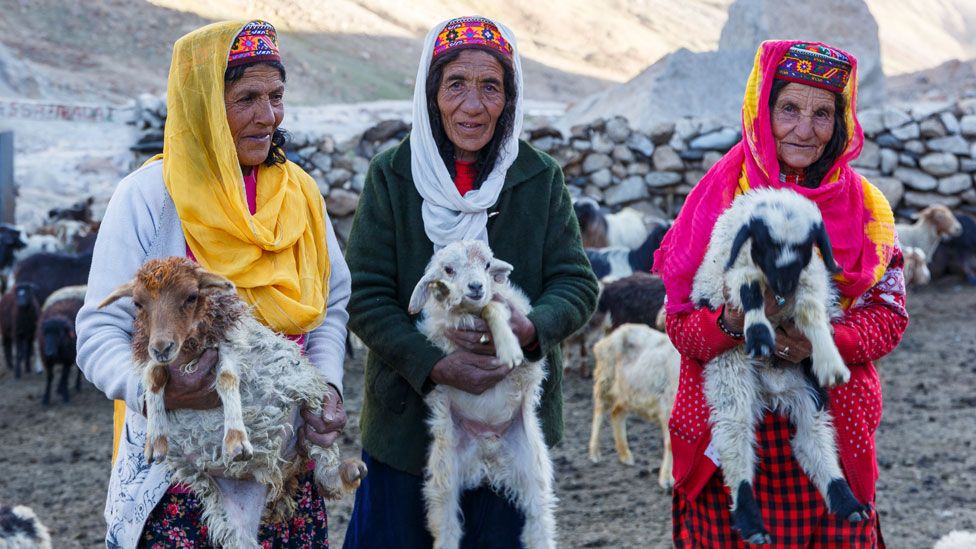-

-
-
Loading

Loading

The Wakhi shepherdesses of Pakistan have long relied on trekking to remote mountain pastures to graze their flocks, which has helped to sustain their community by providing income for healthcare, education, and infrastructure development. However, this way of life is disappearing, with only seven shepherdesses remaining. The journey to the pastures is treacherous, with steep and narrow mountain trails. The women use whistles and shouts to keep their animals on track and prevent them from straying or falling. In the past, dozens of shepherdesses would make this trek with their children, but now it takes five days instead of three due to the challenging conditions and altitude. The threat of landslides is always present, and the journey used to be even harder without the thermal jackets and walking shoes they have now. These shepherdesses have faced personal hardships, including the loss of children due to a lack of healthcare in the mountains. Despite the challenges, the shepherdesses became successful businesswomen, relying on bartering their goods for huts and houses. Their shepherding, combined with the men's farming, transformed the community and helped fund the construction of the only road out of the valley. This road improved access to healthcare, education, and opportunities for the community. The younger generation has been encouraged to pursue education and other professions, breaking the cycle of hardship. While the shepherdesses are proud to see their children doing well, there is sadness that their trips to the pastures are no longer feasible. Shepherding holds a deep emotional connection for them, and some desire to be buried there alongside their children.